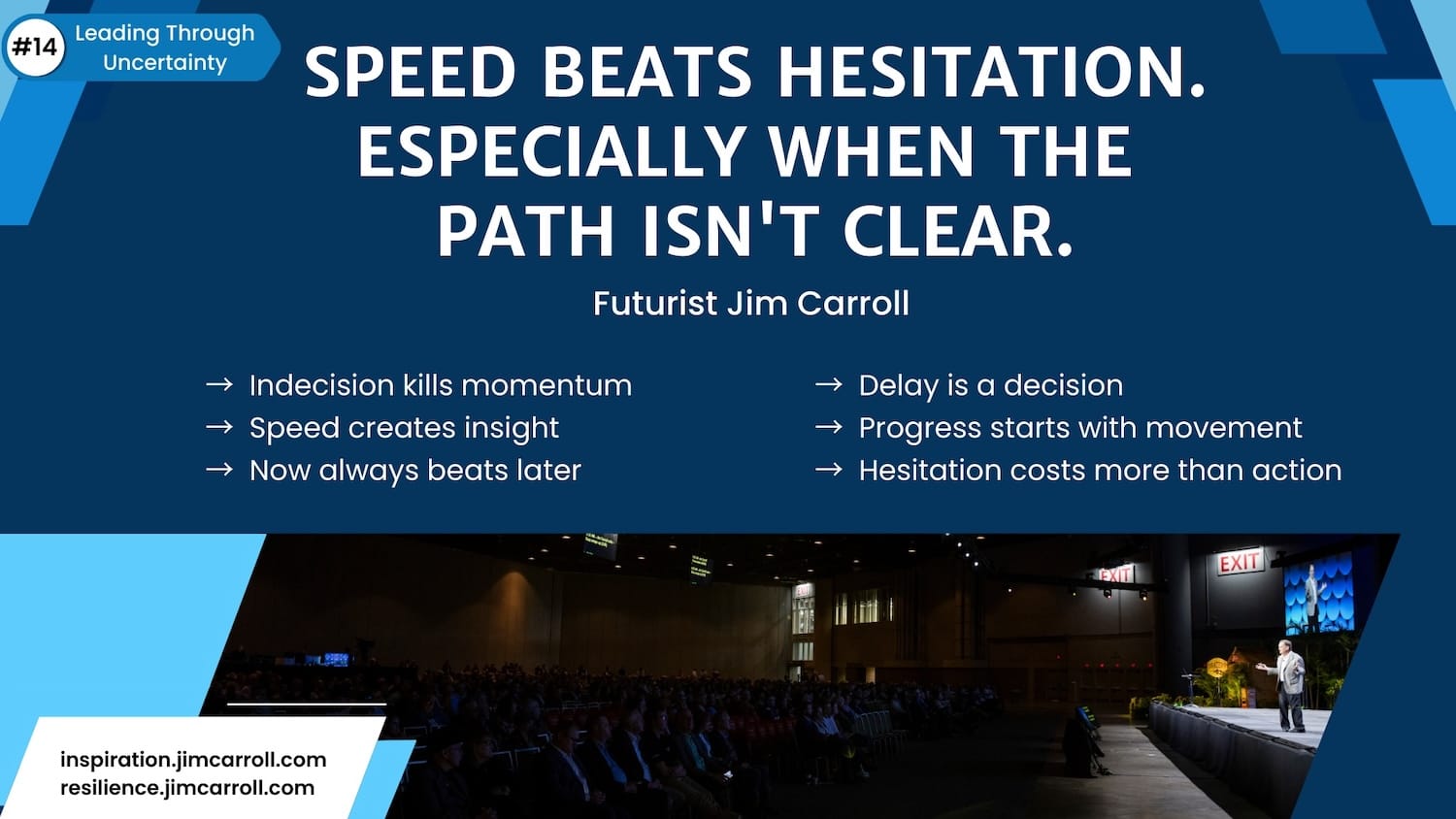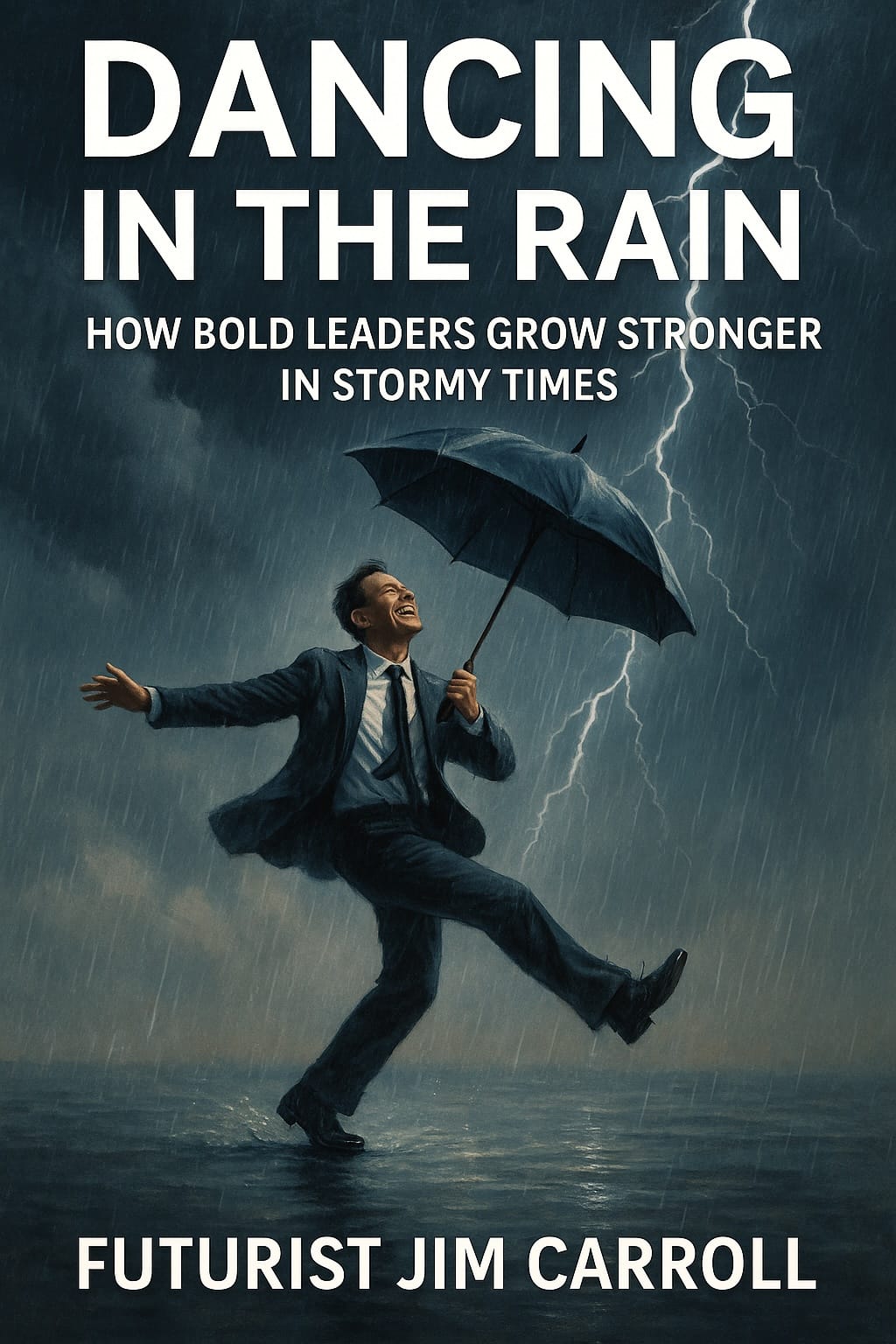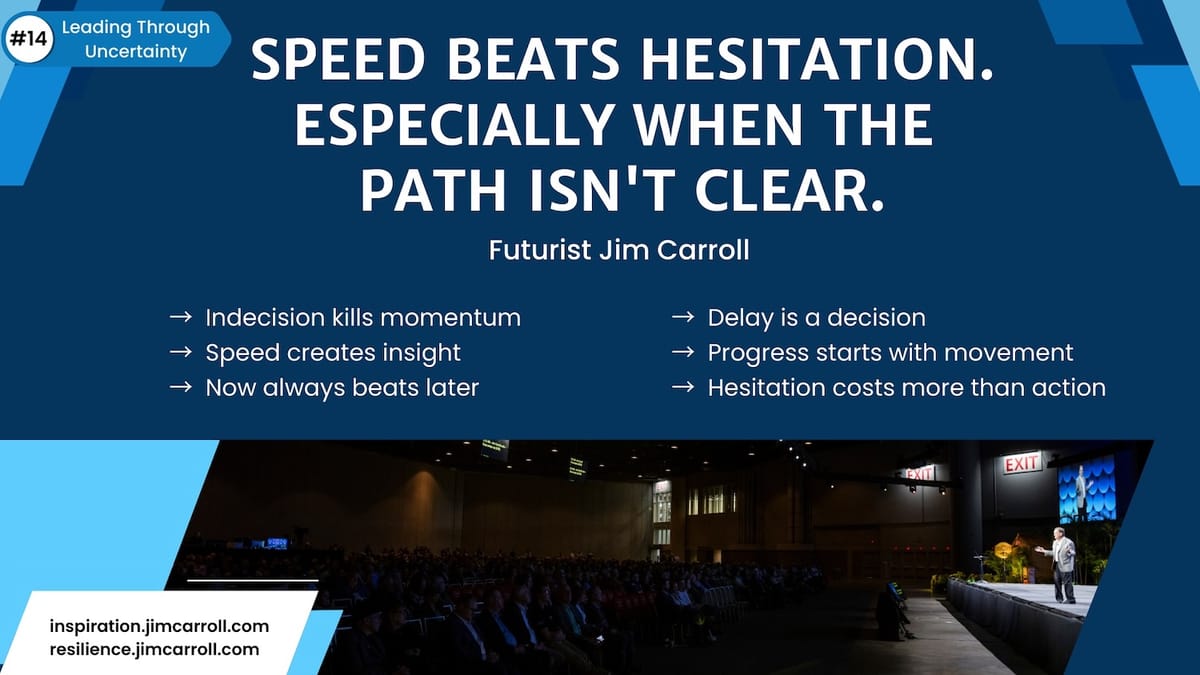"Speed beats hesitation. Especially when the path isn't clear." - Futurist Jim Carroll

This is post #14 of a series I am writing on leading through uncertainty. The series will run to number 20. Sometime last week, as I worked on the structure of the series, I realized I had a book in there. I decided yesterday that I'll be going forward with this. Most of the material will have been written, and it will be a matter of kicking it into a final manuscript that will come out to about 110-120 pages. This will go into the project queue - my book Escaping Mediocrity should be out within two weeks, and I'm in the middle of a rewrite of my Being Unique book. That being the case, we'll slip this one in between those two, aiming for a mid-summer release. With that in mind, I'm thrilled to announce the book title - Dancing in the Rain: How Bold Leaders Grow Stronger in Stormy Times.

In a downturn, momentum matters more than perfection. Delay costs more than missteps. The biggest risk isn’t moving too fast—it’s moving too slow while the world speeds up.
And yet, In times of uncertainty, the most natural instinct of all is to wait. Wait for the data. Wait for a signal. Wait until the noise settles, the picture clarifies, and the next steps feel obvious. But here’s what too many leaders forget - the path forward doesn’t get clearer by standing still, it gets clearer by moving.
We are deep into a moment when the cost of indecision is far greater than the cost of action, and the trap of your 'aggressive indecision' becomes more significant every day. I've seen it play out countless times: a moment of economic volatility hits, and leadership teams and people fall into a state in which they decide the easiest decision to make is to simply .... not make them.
It’s not that they don’t care. It’s that they overthink things. They fritter away time in endless meetings. They chase every scenario. They wait for perfect timing. They pause strategic initiatives. They delay customer-facing launches.
They stall their momentum—believing they’re being cautious when in reality, they’re just stuck. And so in a world in which the future belongs to those who are fast, they slow down.
And while they stall? Markets shift. Competitors move Talent gets restless. Customers look elsewhere. That's the wrong thing to do - history favors the decisive, and who move at the speed demanded by fast-changing circumstances.
Data backs this up. A comprehensive Harvard Business Review study of 4,700 public companies over three recessions found that the top performers weren’t the ones who paused—they were the ones who acted strategically, quickly, and with confidence. Only 9% of companies outperformed their peers after a downturn—and they did it by balancing discipline with decisive moves at speed. A McKinsey study found the same: companies that moved first and fast during a downturn consistently gained market share during the recovery.
Those aren't isolated studies. Decades of research from leading economists, consulting firms, and central banks make one thing clear: waiting because of indecision is expensive. Academic studies have shown that uncertainty during past downturns, like the 2008 financial crisis, accounted for as much as 30% of the decline in corporate investment. The broader economic impact is real - GDP drops, market share is lost, hiring slows, and indecision cascades through entire industries.
In short? While caution may feel responsible, the real risk lies in hesitation. Doing nothing often costs far more than doing something imperfectly. Moving slowly to 'wait and see' is doomed to fail when things are moving too fast. If you’re waiting for perfect conditions, you’ll be waiting forever! If you’re waiting for 100% certainty, you’ve already lost your window.
So what should you do? Refuse to follow the instinctual response of slowing down. Make some small moves that break the freeze. Recommit to one stalled project and push it forward—this week. Create a 30-day “action sprint” around a market opportunity. Empower your teams to act on ideas without needing executive sign-off. Turn a strategy deck into a working prototype.
Start moving. Fast. Start moving before you’re ready - simply because you know that speed matters.
Futurist Jim Carroll recognizes that moving at speed matters and that with this period of uncertainty set to linger for quite some time, a book to help leaders dance through the rain is timely.

